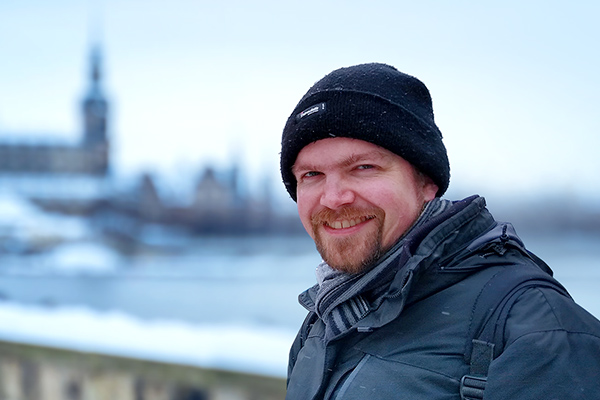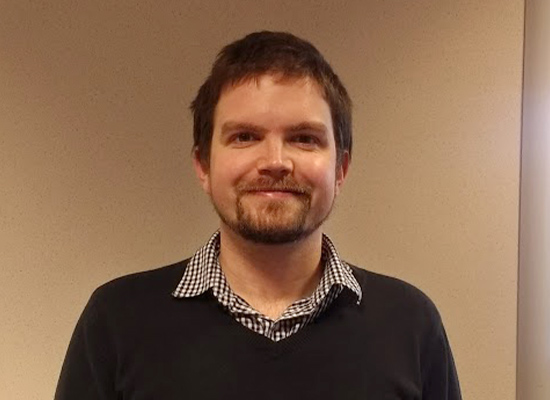My connection with Japan
The memories of my first visit to Japan are imprinted on my mind very clearly.
The on-time shinkansen bullet trains, vending machines alongside the roads, all the things I thought existed only in video games and anime were right there in front of me! I was also struck by the wonderful traditional buildings, Japan’s wonderful nature, the friendliness of the people and so on.
But I was also quite nervous, particularly because of the language barrier and very different culture.
You may wonder why I was in Japan on my own. It was in 2010 just after I had finished my masters degree. But before I tell you about that, let me share some of my earlier story.
As a boy, I enjoyed spending lots of time drawing, painting and making things, just like other kids. I also enjoyed solving problems.
I remember writing an essay about why math was my favorite subject - because the work was almost entirely based on problem solving.
There was also a time when video games and anime were popular among my friends, especially games produced in Japan. I was fascinated by these and looking back, this may well be what started my interest in Japan.
Learn, build, and connect
As I grew up, my interest turned completely towards computer programming – it was my passion!
I got the chance to study BASIC - a programming language taught in year 10 of secondary school.
And I enjoyed every moment, spending time on coding that eventually produced really good results and I always got high scores in tests!
Computers and programming became another outlet for my love of problem solving.
A defined problem to solve but with multiple solutions to explore – this creative freedom fascinated me!
I discovered that I could create things freely based on what I learnt.
I have no doubt that computer programming is capable of satisfying my love of exploration.
The more I explore in this field, the more I learn, understanding new and unknown things better and better.
Shortly after I graduated from high school near London, I studied computer science as an undergraduate and developed an interest in AI. I then went on to take a masters to further my studies in AI.
This happened to be a research masters, and it struck me how my research project was very different from all the assignments I had done as part of my undergraduate studies.
In the assignments, questions were pre-defined and I had to find the answer.
But in research, I could not only provide the answers but also set the questions!
Research provided a more flexible environment for problem solving, really letting my creativity flow and I thoroughly enjoyed it.
The road to a career in technology
So back to the first topic, the reason I paid that first visit to Japan.
I chose to study Japanese as my minor subject alongside my major at university - mainly because of my enjoyment in playing Japanese video games.
I love computer science but I really wanted to experience something different before going further with my career.
So after graduating, I applied for a working holiday post, involving teaching English in Japan for 8 months.
During my visit, I spent my free time visiting tourist sites like the Nikko shrine, and I even managed to climb Mt. Fuji. It was a precious and really vivid experience.
But it also set me thinking that I wanted to stay connected to Japan somehow in the future, maybe as part of my career.
I returned to the UK to study a PhD and give research another go, at the same time looking for
every opportunity to build my teaching skills.
After my time in Japan, I had discovered that I really enjoyed teaching.
In fact, I really wasn’t sure whether I wanted to continue in technology or focus on teaching English.
They are both really important to me.
I decided to cast a wide net to see what I could find that might tick both the “technology” and “Japan” boxes. One of the roles I applied for was as a software developer in the Fujitsu UK&I graduate scheme, and I was accepted! I'm really glad I made that decision!
My research and the outcome
My current project concerns "Neuro-Symbolic Integration (NSI)", which can be described as explainable AI (XAI) for neural networks.(*1)
I have been involved in multiple projects since joining Fujitsu and joined Fujitsu Research of Europe after a year of software development.
My team and I are exploring how we can develop a framework to explain the behavior of convolutional neural networks (CNNs), which are most commonly used for image recognition, in particular for safety-critical tasks such as self-driving cars and the classification of medical images such as MRI or CT scans.
I originally brought experience in NSI to Fujitsu from my PhD days, as my thesis was on this very topic.
I have always been interested in NSI. At the start of my PhD I was more interested in the problem of building an 'artificial brain' than in applied AI, and NSI seemed like a logical approach to the task because it combines the strengths of two models - neural networks and symbolic AI - which were traditionally seen as opposites. As my career advanced I felt that applied AI was more beneficial to problems of the present day and to me building artificial minds was just an intellectual pursuit inspired by science fiction. Thankfully, I found that NSI was relevant to applied AI also, so I could justify working on this topic.
I now lead Fujitsu's research in this area, collaborating with multiple teams to advance our activity, including external collaborators from City, University of London, who are leaders in NSI research.
I designed the core IP(Intellectual Property) myself; others have built on top of it, and together we have published papers(*2) to prove the efficacy of our work to the world.
It is personally extremely satisfying to know that we have been able to achieve so much with this topic, not just in terms of academic achievement but also as an essential element behind enabling AI to contribute to society in a safe and effective way.
To accumulate knowledge from multiple fields and freely explore potential applications
My purpose is "To accumulate knowledge from multiple fields and freely explore potential applications."
If every piece of knowledge is a building block, then more knowledge leads to a broader set of possibilities for what I build!
But it is particularly important to me that what I build has a real purpose.
And I believe that with respect to AI or any 'horizontal' technology, an intimate knowledge of the target application areas is absolutely imperative for developing accurate, safe solutions suitable for customers to deploy.
In our NSI research, we are currently looking at applications in radiology.
I am now learning as much as I can about this discipline, from the features represented in scans to what customers need. It puts me in a better place to promote our ideas to customers and justify the work we are doing.
XAI is crucial for AI innovation. It provides a means to unearth exciting discoveries and translate them into a human-interpretable format.
It isn't just about ethics and accountability, but has multiple other applications, one of which is knowledge discovery.
For myself, I want to explore further about how we can apply our technology to discover new knowledge and produce more 'building blocks' for science as a whole!
My work allows me to apply my knowledge across AI and NSI, and to generate unique ideas for the future. It’s both a pleasure and an honor to be able to make a meaningful contribution to our path of discovery through my experience and knowledge.




I am a Christian and I enjoy attending a Japanese Church in London.